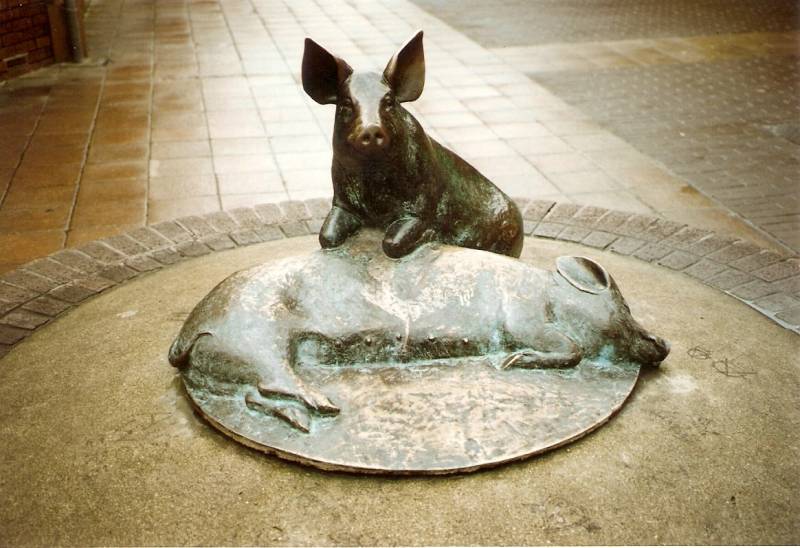
A statue commemorating a small Wiltshire town and its links with the the pork industry has been re-installed.
A small bronze statue of two pigs was stolen from Phelps Parade in the town of Calne on 2 October. It commemorates links to a pork factory which, at its height, employed around a fifth of the town's population.
Calne's main industry, other than being a small market town, was the imposing Harris pork processing factory.
The Harris family invented the Wiltshire cure ham. Originally it was a dry cure method that involved applying salt to the meat for 10–14 days.
The factory provided employment directly and indirectly to many of the residents until the early 1980s; at its closure in 1983 it employed over 2,000 people out of a town population of 10,000.
It is said that the pork-curing industry developed because pigs reared in Ireland were landed at Bristol and then herded across England on drovers' roads to Smithfield, London, passing through Calne.
The factory started in the second half of the 18th century when brothers John and Henry Harris started businesses which merged in 1888 as C. & T. Harris & Co.
The factory has now been fully demolished and its site redeveloped as shops, housing and a library.
As a result of the closure, unemployment in the town increased considerably and during much of the 1980s Calne suffered many of the economic restructuring problems more usually associated with large cities.
A teenager was arrested in connection with the theft of the artwork, and has now been released under investigation.
